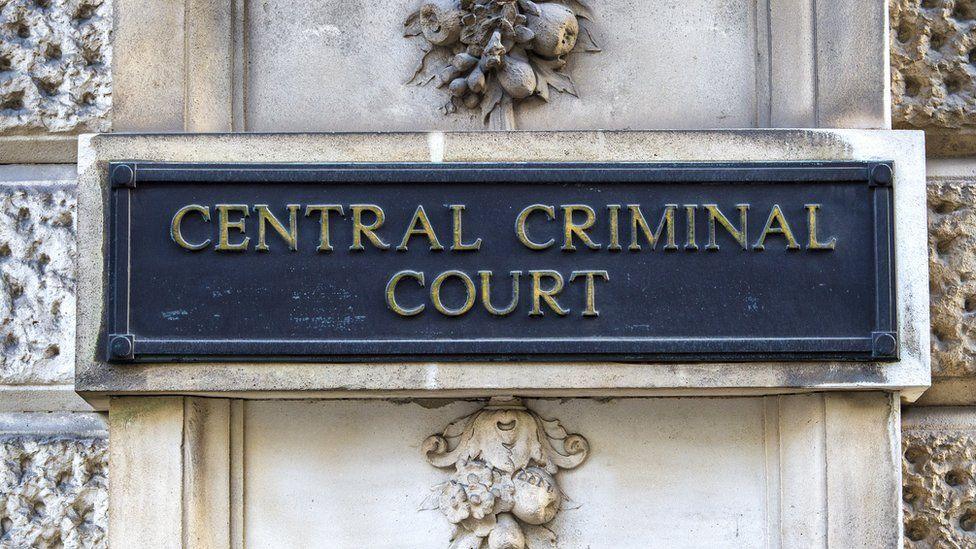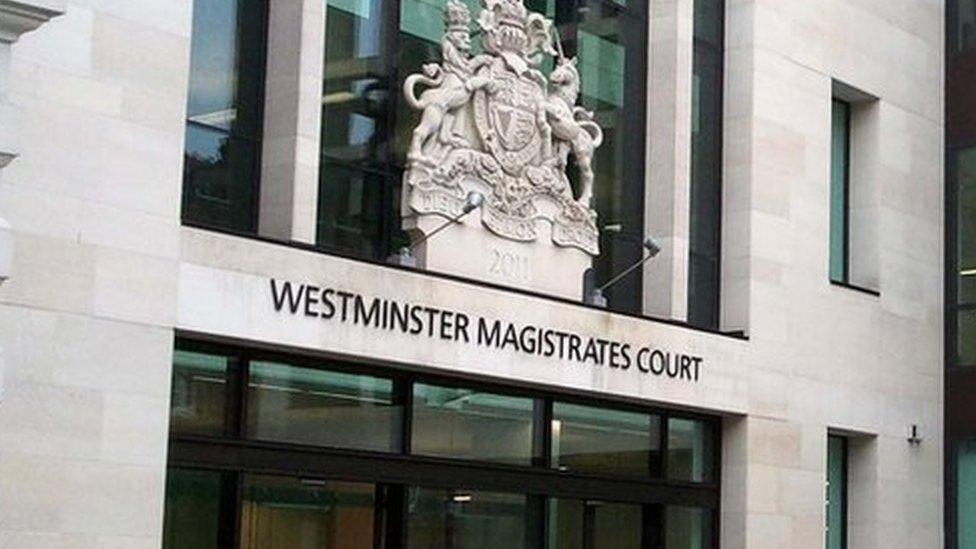Ex-boarding school pupil who posted neo-Nazi videos avoids jail
- Published

Oliver Riley admitted to the terrorism offences after he was arrested
A former private school pupil who posted neo-Nazi and homophobic videos on the internet has avoided jail.
Oliver Riley, 19, admitted a string of terrorism offences following his arrest at a boarding school in Gloucestershire in October 2021.
He uploaded 23 videos to the internet that were racist, homophobic and glorified Nazism and terrorist attacks.
The judge said he accepted Riley's "genuine remorse" and sentenced him to a three-year community order.
Police seized a mobile phone, a laptop and a red notebook during a search of Riley's room following his arrest.
The channel he used to upload the offensive material was open to the public and had 21 subscribers, the Old Bailey heard.
Holocaust denying meme
In June 2020 he posted a music video with the title "Kill all the gays" that had been viewed 234 times.
In August 2020, he posted another video featuring footage filmed by the terrorist who murdered 51 people in Christchurch, New Zealand, that was set to a Looney Tunes audio background.
On 12 October 2021 he pleaded guilty to possession of a document containing information useful to a person preparing an act of terrorism.
The document included instructions on how to make high and low explosives and how to set up a paramilitary unit.
He also sent a holocaust denying meme via WhatsApp to his then girlfriend.
Riley told the court he had taken shooting lessons at school but had made no attempt to make explosives from the instructions he had.
Prosecutor Tom Williams said the defendant, from Watlington in Oxfordshire, was aged 16 and 17 at the time of the offences.
When cautioned by the police, he said Riley had told officers "I have been incredibly stupid".
Following his arrest, Riley said he was "sorry" for what he had done, Mr Williams added.
In July, Riley admitted providing a service to others to obtain, read, listen to or look at a publication to encourage terrorism and pleaded guilty to the charges against him.
'High-achieving sibling'
In mitigation, Ed Henry KC said Riley had traits of an autism spectrum disorder.
Mr Henry said Riley had a "high-achieving sibling" but was himself "a stumbler" and suffered from "a chronic sense of under-achievement".
He suggested Riley had "bought into" the "putrid propaganda" he had been exposed to that had led him to say he wanted to go to South Africa and turn it "into a pro-white" state.
The court previously heard how Riley had sent a message on WhatsApp saying: "Sometimes I want to die, kill my self, go to war or something, I sometimes want to kill people and rape people because I am so angry."
"He had no intention to rape anybody and he had no intention of killing anybody," Mr Henry said.
"He made a series of calamitous errors of judgment, mistakes."
Mr Justice Jeremy Baker said at sentencing he had taken into account Riley's co-operation with the investigation, his young age and early guilty plea.
Delivering his judgement he said in this case, "exceptionally", he was satisfied a community order would be effective.
Riley must complete a rehabilitation activity for 60 days, he must carry out 200 hours of unpaid work, and he may not delete his digital history for three years.

Follow BBC West on Facebook, external, Twitter, external and Instagram, external. Send your story ideas to: bristol@bbc.co.uk , external
Related topics
- Published7 June 2022
